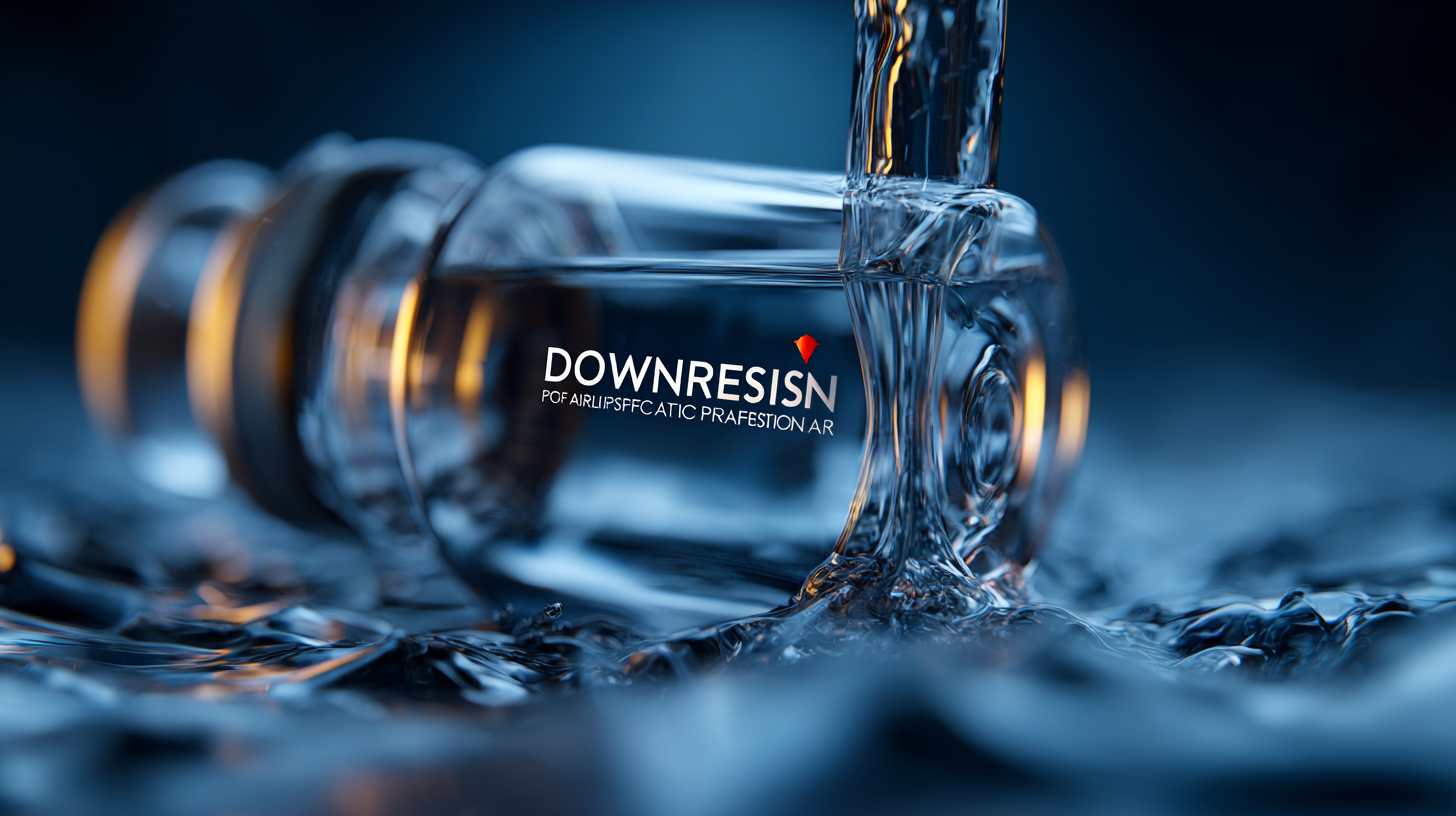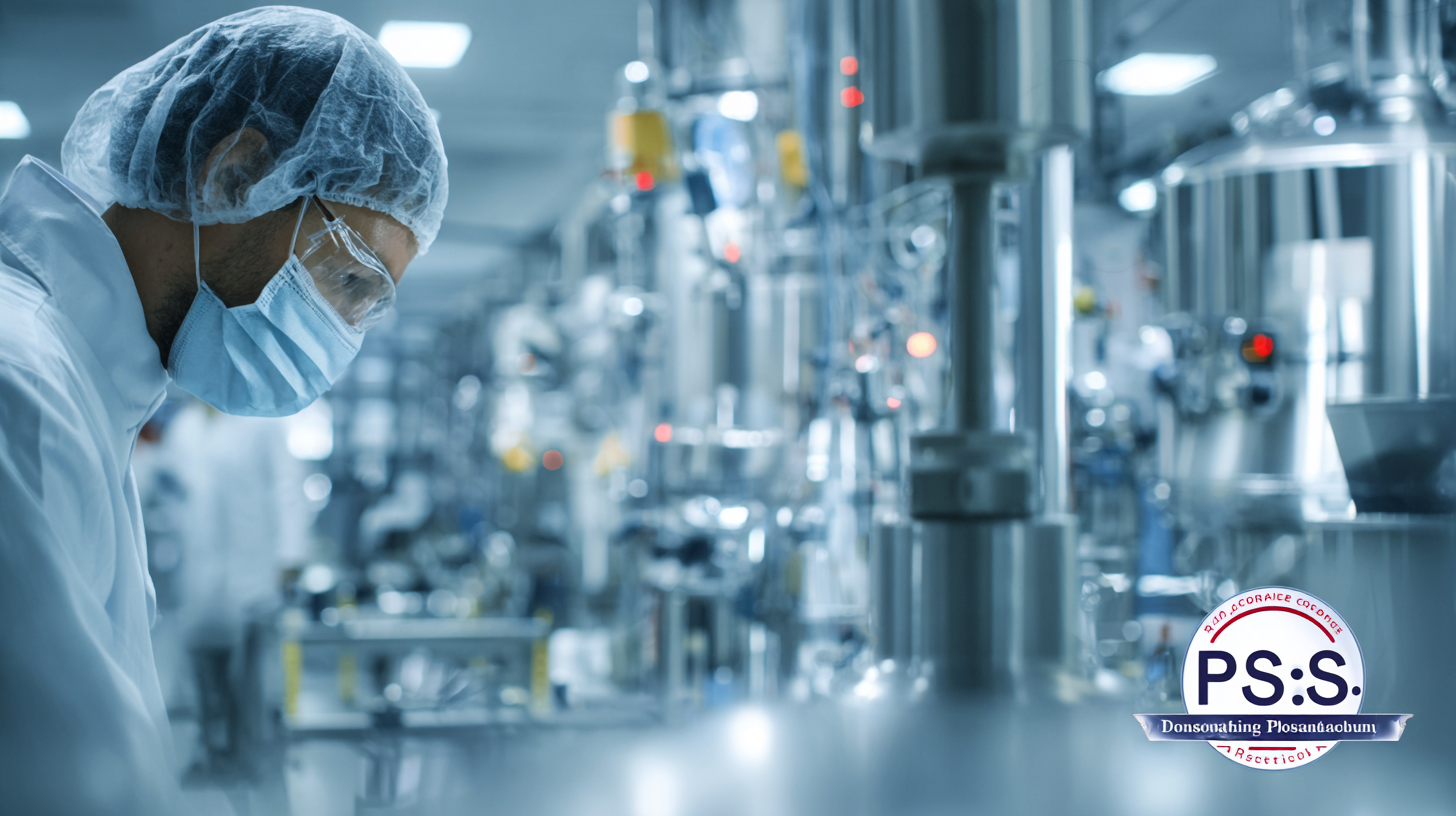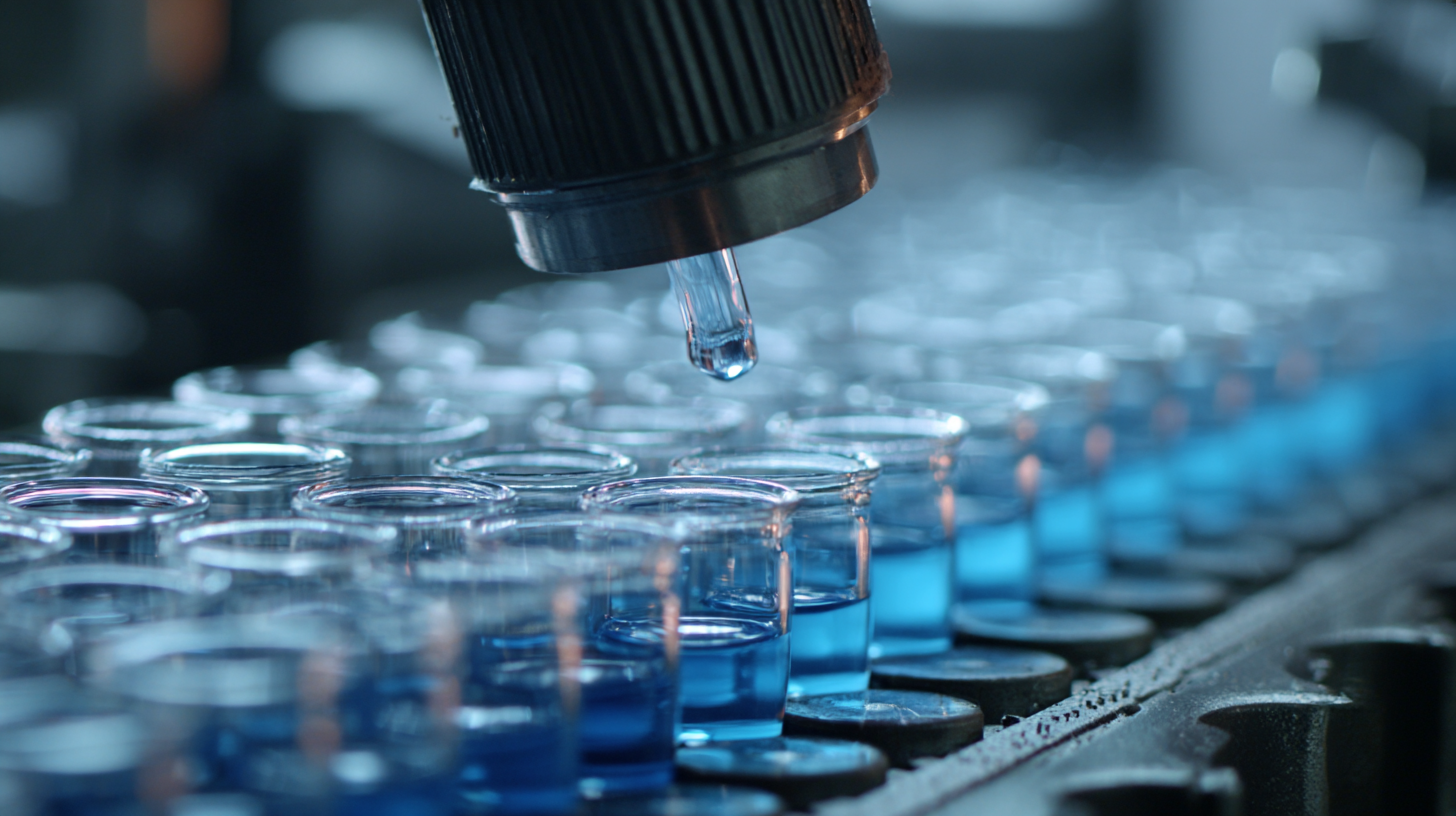Leave Your Message
Request a Quote
In the rapidly evolving landscape of biopharmaceutical manufacturing, the significance of Downstream Processing (DSP) cannot be overstated. With the global biopharmaceutical market projected to reach $508 billion by 2025, driven by the increasing demand for biologics, the efficiency and innovation in DSP methods are pivotal. According to a recent report by MarketsandMarkets, the DSP segment is expected to witness a considerable CAGR of 9.2% from 2020 to 2025, highlighting its crucial role in ensuring the purity, yield, and scalability of biopharmaceutical products. As companies strive to meet stringent regulatory standards and capitalize on the burgeoning market, the implementation of cutting-edge DSP techniques becomes integral to achieving high-quality outcomes while optimizing costs.

This blog explores innovative applications within the realm of DSP and their impact on advancing biopharmaceutical manufacturing processes, particularly in the context of import and export certification policies essential for global trade.
Downstream processing plays a critical role in biopharmaceutical manufacturing, directly impacting the quality of the final product. As the biopharmaceutical industry increasingly demands higher purity and efficiency, innovative techniques are essential. One such advancement is the adoption of continuous chromatography, which streamlines the purification process and enhances scalability. This method not only improves yield and efficiency but also significantly reduces operational costs by minimizing the need for batch processes.
The advantages of continuous chromatography in downstream processing are multifaceted. The technology facilitates real-time monitoring and control of purification cycles, allowing manufacturers to respond quickly to variations in process conditions. By integrating continuous chromatography within the production line, companies can achieve a more consistent and reliable product quality while also maximizing throughput. This shift towards continuous processes represents a significant evolution in bioprocessing, showcasing the potential to meet the growing demands of the biopharmaceutical market while ensuring that stringent quality standards are maintained.
The biopharmaceutical manufacturing landscape is undergoing a transformative shift with the introduction of innovative downstream processing technologies. Among these, single-use technologies (SUTs) have emerged as a game-changer. These systems, which are utilized extensively in downstream processing, offer notable advantages such as minimized contamination risks, simplified validation processes, and enhanced operational efficiency. As manufacturers strive for greater agility and flexibility, SUTs are proving invaluable, streamlining the production workflow while also reducing costs associated with cleaning and maintaining traditional reusable equipment.
Furthermore, advancements in downstream chromatography techniques are playing a crucial role in optimizing biologics production. Recent strategies aim to not only lower expenses but also improve overall process efficiency. Techniques such as process analytical technologies (PAT) enable real-time monitoring and control of the manufacturing process, ensuring higher compliance and quality standards. As these innovations take hold, the biopharmaceutical industry is set to benefit from enhanced productivity and sustainability, paving the way for a new era of manufacturing excellence.

In the rapidly evolving landscape of biopharmaceutical manufacturing, consistent quality assurance plays a pivotal role, particularly within the Chinese sector. As China continues to emerge as a global player in biopharmaceuticals, the pressures of international competition demand a stringent adherence to quality standards. This is not just about meeting local regulatory requirements but also about ensuring that products can compete on a global stage, fostering trust among healthcare providers and patients alike.

Moreover, the implementation of robust quality assurance protocols can significantly reduce the risks associated with biopharmaceutical production. By incorporating advanced technologies and methodologies—such as real-time monitoring and data analytics—manufacturers can identify potential quality issues early in the process. This proactive approach mitigates the possibility of costly recalls or production delays and enhances the overall efficiency of the manufacturing process. As the Chinese biopharmaceutical industry continues to grow, maintaining consistent quality assurance will be essential for its sustained success and reputation in the international arena.
In recent years, the biopharmaceutical industry in China has witnessed remarkable advancements in downstream processing techniques. These developments are pivotal to ensuring the purity and efficacy of biologics, and several case studies illustrate their successful implementation. For instance, a leading biopharmaceutical company in Shanghai adopted a novel chromatography method, significantly enhancing the separation process of monoclonal antibodies. This innovation not only reduced processing time but also minimized the associated costs, making it a scalable solution for future production.
Another noteworthy case involves a biotech startup in Beijing that implemented membrane filtration technologies for viral clearance. By optimizing this downstream technique, they achieved a 50% increase in throughput while maintaining regulatory compliance and product integrity. Such success stories highlight the potential for creative applications of established downstream methods, enabling companies in China to compete on a global scale. As these techniques continue to evolve, they promise to further revolutionize the landscape of biopharmaceutical manufacturing in the region.
| Case Study | Technique Used | Key Achievements | Year of Implementation |
|---|---|---|---|
| Case Study 1 | Affinity Chromatography | Increased purity by 30% | 2021 |
| Case Study 2 | Membrane Filtration | Reduced processing time by 20% | 2020 |
| Case Study 3 | Ion Exchange Chromatography | Improved yield by 15% | 2022 |
| Case Study 4 | Precipitation Methods | Cost savings of 10% | 2023 |
The future of biopharmaceutical manufacturing, particularly in downstream processing, is poised for significant transformation driven by innovations in technology and shifting industry trends. According to the 2023 AI Pharmaceutical Industry Report, advancements in artificial intelligence are shifting the landscape of drug development from a traditional model to one that emphasizes automation and precision. This transition allows for the optimization of downstream processes, leading to increased efficiency and reduced production costs.
Furthermore, recent analyses indicate that the global biopharmaceutical market is experiencing rapid growth, with projections estimating a robust expansion in the antibody production sector by 2033. The continuous rise in demand for both monoclonal and polyclonal antibodies underlines the importance of refining downstream processing techniques. Enhanced filtering and purification methods will be crucial for ensuring product quality and compliance with regulatory standards as the industry evolves.
As new drug approvals accelerate, spurred by supportive regulatory frameworks, companies must adapt their manufacturing practices. The integration of synthetic biology and AI in downstream processing can provide the necessary tools to meet these challenges by streamlining production and improving scalability. This synergy not only enhances the overall efficiency of biopharmaceutical manufacturing but also positions the industry for sustainable growth in the years to come.

